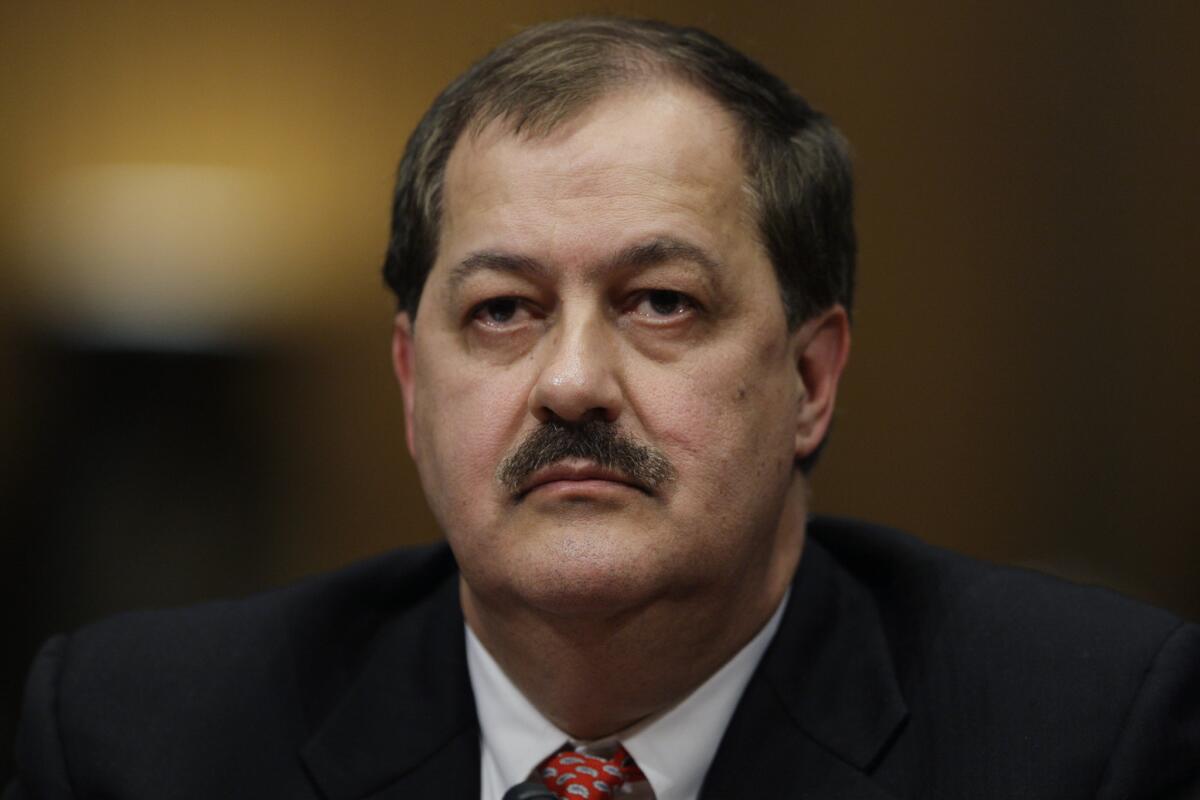Editorial: In West Virginia, an absurdly broad gag order in case stemming from the deaths of 29 miners

- Share via
Four years ago, a buildup of methane gas and coal dust exploded in West Virginia’s Upper Big Branch Mine, killing 29 workers in the deadliest American coal mine disaster in 40 years. The mine was owned by the Massey Energy Co., led by CEO Don Blankenship, whose management style and political reach — in West Virginia and nationally — seemed rooted in the coal baron era of a century ago. One would be hard-pressed to find someone in West Virginia who doesn’t know of Blankenship.
The subsequent investigations, which were followed closely in West Virginia, concluded that the blast was the culmination of years of neglect and, at times, willful efforts by Massey managers to skirt safety laws and regulations. The investigations also uncovered a shameful lack of diligence on the part of the federal Mine Safety and Health Administration, which oversees the industry.
Massey was bought in 2011 by Alpha Natural Resources, which quickly settled federal claims and victim compensation requests for $209 million. But that wasn’t the end of the story: Last month, the investigation led to Blankenship’s indictment on four charges of conspiracy and fraud. He allegedly conspired to violate health and safety laws to maximize company profits.
Given the high profile of the tragedy and its aftermath, it’s astounding that on the day after the indictment, U.S. District Judge Irene C. Berger issued a laughably broad gag order in the case. Not only did Berger bar lawyers and court officials involved from discussing the case publicly, she extended the gag to “family members of actual or alleged victims.” In other words, even Victim X’s long-lost cousin twice removed and living far from the state of West Virginia is legally barred from discussing the case. Furthermore, only those people involved in the case may review court records, including the indictment itself. Several news organizations challenged the gag order this week.
Such overreach by the court is unnecessary and entirely inappropriate. Berger said she wanted to ensure the seating of “jurors who can be fair and impartial and whose verdict is based only upon evidence presented during trial.” But given the enormity of the disaster and Blankenship’s prominent position in West Virginia, a gag order at this point does little to protect against prejudices among potential jurors in West Virginia.
This is a criminal case of significant public interest. Given Blankenship’s deep and extensive political connections, and his role in corporate decisions that may have led to the deaths of more than two dozen people, this is precisely the kind of court proceeding that needs to be conducted in as open a manner as possible. The credibility of the court is at stake, not to mention the citizens’ right to watch what their government is doing in their name.
Follow the Opinion section on Twitter @latimesopinion
More to Read
A cure for the common opinion
Get thought-provoking perspectives with our weekly newsletter.
You may occasionally receive promotional content from the Los Angeles Times.









